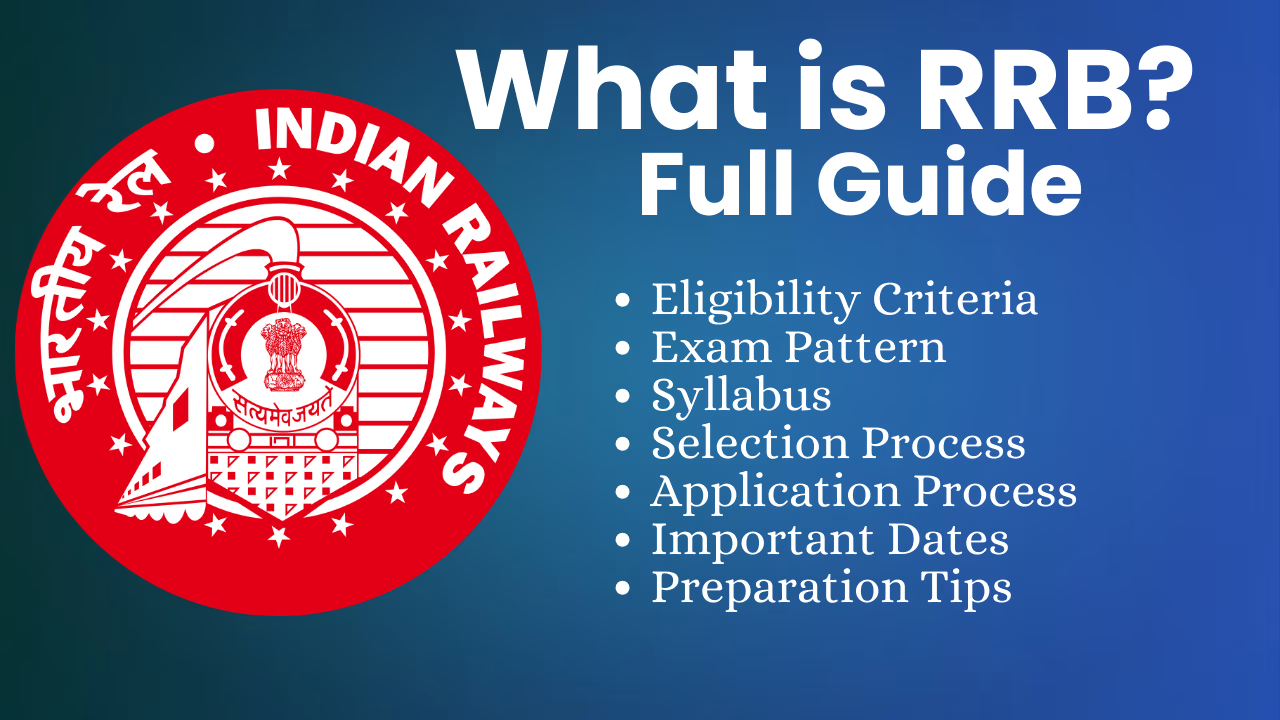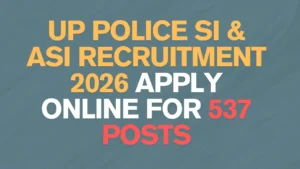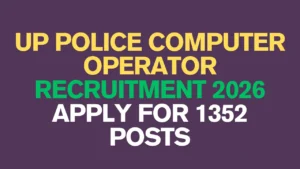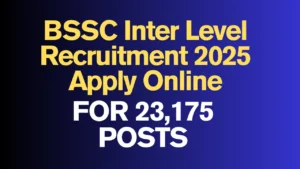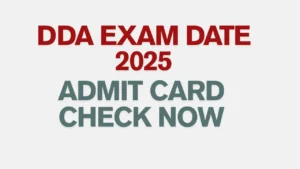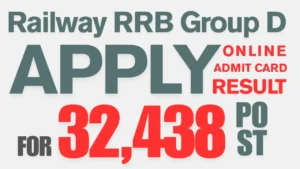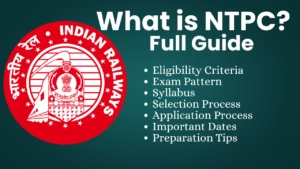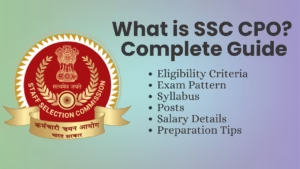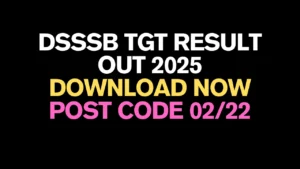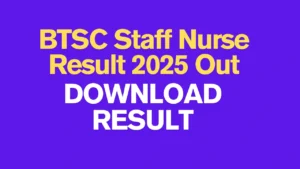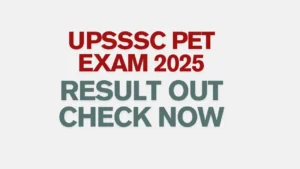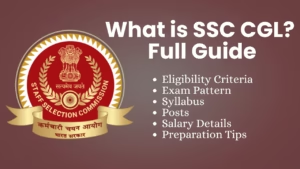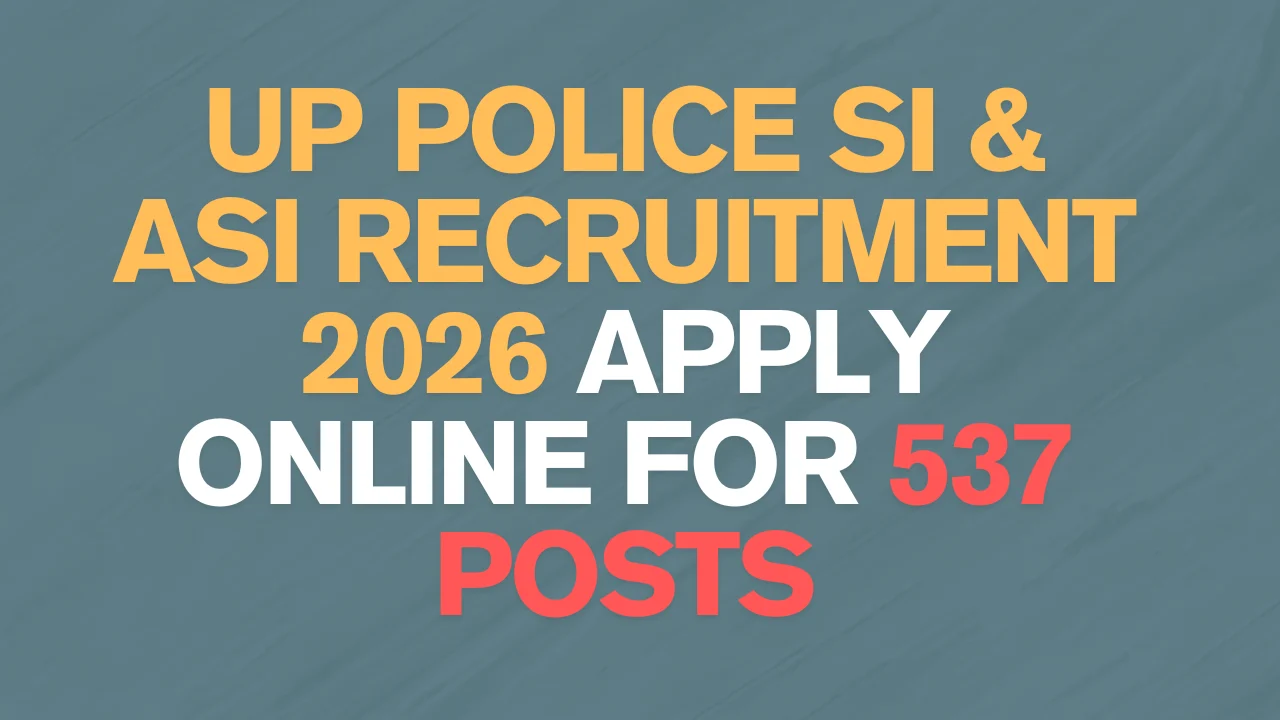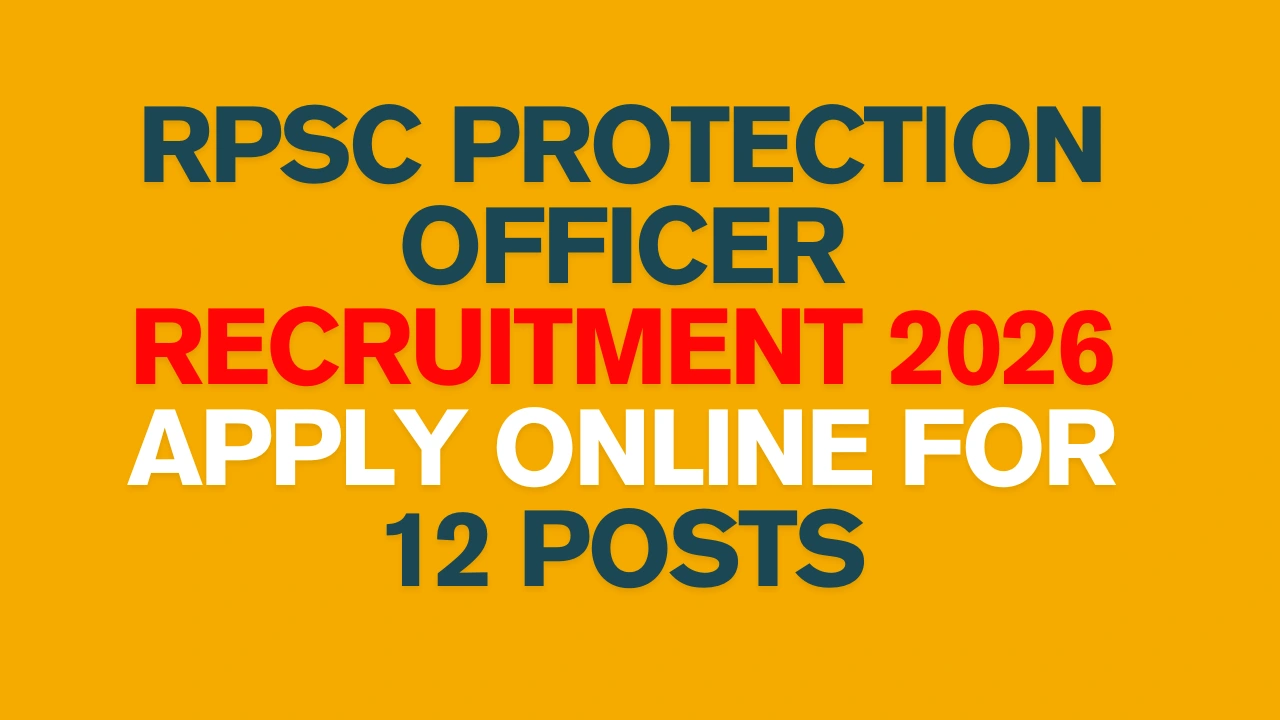Dreaming of a secure and prestigious career with the world’s fourth-largest railway network? For millions of Indians, a job in the Indian Railways is a symbol of stability, pride, and a lifetime of benefits. The key to unlocking this dream is the RRB exam.
But what exactly is RRB? Which exams does it conduct, and for which posts? What are the eligibility criteria, salary, and the step-by-step process to get selected?
Welcome to the ultimate master guide by Rojgar Point. This article is your one-stop destination for everything you need to know about Railway Recruitment Board (RRB) exams. Whether you’re a 10th pass, 12th pass, or a graduate, this guide will show you the track to your dream railway job. Let’s get started! 🚂
What is the Full Form of RRB?
First, let’s understand the full form. RRB stands for Railway Recruitment Board.
There are a total of 21 RRBs across India, each catering to a specific geographical zone. These boards are government organizations that work under the Ministry of Railways. Their primary function is to manage the recruitment process for various Group C and Group D posts in the Indian Railways.
In simple terms, whenever the Indian Railways needs to hire new employees for non-gazetted technical or non-technical posts, the responsibility for conducting the exams and selecting the candidates lies with the RRBs.
Major Exams Conducted by RRB
RRBs conduct some of the biggest recruitment drives in the world, attracting crores of applications. Here are the four major examinations you must know about:
- RRB NTPC: This is for non-technical posts. It’s one of the most popular exams for 12th pass and graduate candidates.
- RRB ALP: This is a technical exam for those who want to become Assistant Loco Pilots (train drivers) or Technicians.
- RRB JE: This is for recruiting Junior Engineers in various technical departments of the railways.
- RRB Group D (Level 1): This exam is for various entry-level posts and requires a minimum qualification of 10th pass.
In-Depth Look at Major RRB Exams and Posts
Let’s break down each exam to see what posts are offered.
1. RRB NTPC (Non-Technical Popular Categories)
This exam recruits for a wide range of clerical, administrative, and station-level posts.
| Level | Posts (Undergraduate – 12th Pass) | Posts (Graduate – Degree Holders) |
| Pay Level 2 | Junior Clerk cum Typist, Accounts Clerk cum Typist, Junior Time Keeper, Trains Clerk | |
| Pay Level 3 | Commercial cum Ticket Clerk | |
| Pay Level 5 | Goods Guard, Senior Commercial cum Ticket Clerk, Senior Clerk cum Typist, Junior Account Assistant cum Typist, Senior Time Keeper | |
| Pay Level 6 | Commercial Apprentice, Station Master |
2. RRB ALP & Technician
This exam is for candidates with technical qualifications who are the backbone of train operations and maintenance.
- Assistant Loco Pilot (ALP): Responsible for assisting the main train driver and learning the ropes of train operation. This is a highly responsible job.
- Technician: Works in various technical departments to maintain railway infrastructure, including signals, tracks, and rolling stock.
3. RRB JE (Junior Engineer)
This is for engineering diploma or degree holders who wish to work in technical roles.
- Junior Engineer (JE): Supervises technical work in departments like Civil, Mechanical, Electrical, and Signal & Telecommunication.
- Depot Material Superintendent (DMS): Manages the procurement and stocking of materials in railway depots.
4. RRB Group D (Level 1 Posts)
This is a massive recruitment drive for entry-level posts that keep the railway network running.
- Assistant (Workshop, C&W, Loco Shed): Helps in the maintenance of coaches and wagons.
- Track Maintainer Grade-IV: Responsible for the maintenance and safety of railway tracks.
- Assistant Pointsman: Manages the switching of tracks in yards and stations.
RRB Eligibility Criteria: Who Can Apply?
Eligibility for RRB exams varies widely based on the post. Here is a general overview.
| Criteria | RRB NTPC (Undergraduate) | RRB NTPC (Graduate) | RRB ALP & Technician | RRB JE | RRB Group D |
| Age Limit | 18 – 33 years | 18 – 36 years | 18 – 33 years | 18 – 36 years | 18 – 33 years |
| Educational Qualification | 12th Pass | Bachelor’s Degree | 10th Pass + ITI / Diploma / Degree in relevant trade | Diploma / B.E./B.Tech. in relevant Engineering stream | 10th Pass or ITI |
Age Relaxation: There is a relaxation in the upper age limit for reserved categories as per government norms (e.g., 5 years for SC/ST, 3 years for OBC).
RRB Exam Pattern and Selection Process
The selection process for most RRB exams involves multiple stages of Computer-Based Tests (CBT).
RRB NTPC Selection Process
- 1st Stage CBT (Common for all posts): A screening exam.
- 2nd Stage CBT (Separate for different pay levels): Marks are considered for the final merit list.
- Typing Skill Test / Computer Based Aptitude Test (CBAT): Qualifying in nature, required for specific posts like Typist and Station Master.
- Document Verification & Medical Examination.
RRB ALP Selection Process
- 1st Stage CBT: A screening exam.
- 2nd Stage CBT (Part A & Part B): Part A marks decide merit, while Part B (Trade Test) is qualifying.
- Computer Based Aptitude Test (CBAT): Mandatory for ALP candidates.
- Document Verification & Medical Examination.
RRB Group D Selection Process
- Computer Based Test (CBT): A single-stage exam whose marks determine the merit.
- Physical Efficiency Test (PET): Qualifying in nature.
- Document Verification & Medical Examination.
Physical Efficiency Test (PET) for Group D:
| Task | Male Candidates | Female Candidates |
| Weight Lifting | Lift and carry 35 kg for 100 meters in 2 minutes (one chance) | Lift and carry 20 kg for 100 meters in 2 minutes (one chance) |
| Running | 1000 meters (1 km) in 4 minutes 15 seconds (one chance) | 1000 meters (1 km) in 5 minutes 40 seconds (one chance) |
RRB Salary Structure: A Rewarding Career
A job in the Indian Railways comes with a good salary and numerous allowances. The salary is based on the 7th Pay Commission.
| Exam | Post Name | Pay Level | Approx. In-Hand Salary (City X) |
| RRB Group D | Track Maintainer, Pointsman | Level 1 (Basic: ₹18,000) | ₹28,000 – ₹32,000 |
| RRB ALP | Assistant Loco Pilot | Level 2 (Basic: ₹19,900) | ₹35,000 – ₹40,000 (including allowances) |
| RRB NTPC (UG) | Commercial cum Ticket Clerk | Level 3 (Basic: ₹21,700) | ₹36,000 – ₹41,000 |
| RRB JE | Junior Engineer | Level 6 (Basic: ₹35,400) | ₹55,000 – ₹62,000 |
| RRB NTPC (Grad) | Station Master | Level 6 (Basic: ₹35,400) | ₹58,000 – ₹64,000 (including allowances) |
The in-hand salary includes Basic Pay, Dearness Allowance (DA), House Rent Allowance (HRA), Transport Allowance (TA), and other special allowances.
Frequently Asked Questions (FAQs)
Q1: Is there negative marking in RRB exams?
Ans: Yes, almost all RRB exams have a negative marking of 1/3rd of the marks for each wrong answer in the CBT stages.
Q2: Are RRB exams conducted every year?
Ans: RRB exams are not conducted annually. They are conducted based on the number of vacancies available, which is usually in cycles of 3-4 years for major recruitments like NTPC and Group D.
Q3: What is the medical standard for railway jobs?
Ans: The Indian Railways has very strict medical standards, especially for technical and operational posts like ALP and Station Master. Good eyesight (including color vision) is mandatory for many posts.
Q4: Can a final-year student apply for RRB exams?
Ans: No, generally candidates must have the required educational qualification before the closing date of the application. However, you should always check the detailed notification for any specific exam.
We hope this master guide from Rojgar Point has given you a complete and clear picture of what RRB is and the massive career opportunities it offers. A job in the railways is not just a career; it’s a chance to be a part of the lifeline of India.

